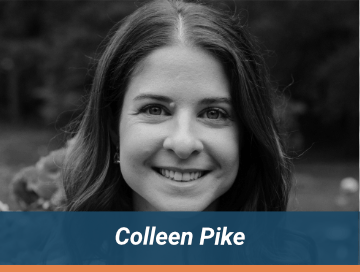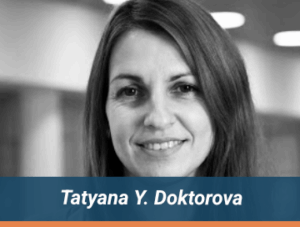VICT3R: Virtually Speaking Webinars Series
Welcome to the VICT3R: Virtually Speaking webinar series! Launched in January 2025, this monthly series is all about bringing together experts from across industries and disciplines to discuss exciting, cutting-edge topics.
Each session offers something different – whether you’re an industry professional, an academic looking to stay ahead of the curve, or just someone curious about the future of science and technology. Our goal is to spark interesting discussions, share insights, and encourage collaboration.
Webinars are open to everyone, and you can catch up on past sessions right here. New webinars are announced monthly on our LinkedIn page, where you can also register to join us live.
We’re excited to have you join the conversation – stay tuned for more!
VICT3R: Virtually Speaking Webinars Series (Season 2)
Running from September 2025 through Spring 2026, Season 2 of the Virtually Speaking webinar series expands the focus beyond VICT3R to explore cross-cutting themes in toxicology, safety science, and data sharing and reuse. All sessions are open to the public and feature external experts from leading initiatives and scientific fields, bringing diverse perspectives to the discussion. Below you can explore the full list of sessions and watch the recordings!
Damien Huzard, PhD
Founder and CEO of Metadatapp (MAPP) and Lead Scientist at NeuroNautix
This webinar discusses how standardising metadata, identifiers, and experimental context can transform isolated experiments into reusable research assets. It reviews the current landscape of reporting guidelines, metadata checklists, and emerging minimal information standards, addressing both their strengths and practical limitations − particularly the gap between descriptive reporting and true machine-actionable standardisation.
Simón Perera del Rosario
Business Development Manager at ProtoQSAR
This webinar explores the current landscape of NAMs for assessing safety and efficacy without the use of animal testing. It highlights the scientific, ethical, economic, and regulatory drivers behind this paradigm shift, as well as the key challenges of coverage, validation, and regulatory acceptance. The focus is placed on in silico NAMs − such as read-across, molecular modelling, and QSAR models − and their integration with IVIVE, IATA, and AOP frameworks to generate human-relevant mechanistic evidence.
Dr. Tatyana Doktorova, ERT
Principal Scientist – Computational Toxicology, Predictive Modelling, Roche Pharma Research and Early Development, F. Hoffmann-La Roche Ltd
In this session we explore how Roche, as part of the VICT3R project, is advancing the use of Virtual Control Groups (VCGs) to transform toxicology research. The session highlights the challenge of building reliable VCGs from decades of legacy animal study data, where essential metadata − such as vehicle, diet, and test facility − has often been missing or unstructured.
Dr. Thomas Steger-Hartmann
Senior Project Lead IHI, Bayer AG, VICT3R Project Lead
Part 3 of our 3-part mini-series on “Overcoming Societal, Cultural, and Regulatory Barriers to Virtual Control Group Adoption” organised in collaboration with Humane World for Animals.
This final session discusses the regulatory and institutional barriers faced during the implementation of virtual control groups by industry and CROs and the approaches to overcome these challenges.
Jan Turner
Principal, Medicines (Humane World for Animals)
Part 2 of our 3-part mini-series on “Overcoming Societal, Cultural, and Regulatory Barriers to Virtual Control Group Adoption” organised in collaboration with Humane World for Animals.
This webinar showcases how stakeholder collaboration and harmonisation have already transformed regulatory practice in vaccine testing. These successful case studies provide a model for how innovation can overcome barriers in safety testing and pave the way for Virtual Control Group adoption.
Colleen Pike
Senior Program Director, Regulatory Science (Humane World for Animals)
Part I of our 3-part mini-series on “Overcoming Societal, Cultural, and Regulatory Barriers to Virtual Control Group Adoption” organised in collaboration with Humane World for Animals.
What really holds back the adoption of new approach methodologies in nonclinical safety testing? This session explores why scientific progress alone isn’t enough – and how shifts in mindsets, institutions, and collaboration are essential to move forward.
VICT3R: Virtually Speaking Webinars Series (Season 1)
Launched in January 2025 and running through July, Season 1 of the Virtually Speaking webinar series brought together experts from inside and outside the VICT3R consortium to address key topics shaping the project. Each theme was explored in two sessions: an open webinar providing a helicopter view of the topic, followed by a consortium-only discussion focused on applying the insights to VICT3R. Topics included SEND data standards, in vivo toxicology study design, study reproducibility, GLP and Computer System Validation (CSV), data curation and quality control, AI-driven approaches, and use of the VICT3R data lake. Below you can explore the full list of open sessions and watch the recordings.
Thomas Hartung
Johns Hopkins Center for Alternatives to Animal Testing (CAAT)
This webinar introduces the concept of “scAInce,” a new scientific paradigm where AI transforms the way we generate, integrate, and apply evidence in toxicology. From digital twins and explainable AI to e-validation, we explore how these tools are reshaping safety science.
Frank Bringezu
Merck Healthcare KGaA
This webinar highlights the data standardisation and curation workflows behind the creation of the #VICT3R database, using the CDISC SEND format to populate single-animal data. These efforts have produced a unique source of curated control animal data – one that can be repurposed to generate Virtual Control Groups (VCGs) and ultimately reduce or replace the need for concurrent control animals in toxicity studies.
Anton Bespalov, MD, DmedSci
Managing Partner at PAASP Network
This webinar takes a critical look at the origins and consequences of low rigor in preclinical studies, and dives into practical barriers that prevent or slow down the adoption of essential practices like randomization and blinding. With experience spanning PAASP, EQIPD, and the ECNP Preclinical Data Forum, Anton brings valuable insights on what’s at stake and what needs to change.
Anja Priess
Head of GLP Management, Bayer AG
This webinar explores the principles and importance of Good Laboratory Practice (GLP) within regulatory submissions and compliance. It provides an introduction to GLP, its historical development, and the evolution of standards ensuring laboratory data quality and integrity. The session also explores a specific scenario highlighting the collaboration between GLP test facilities and suppliers in maintaining GLP standards. Additionally, we cover the intersection of GLP and Computer System Validation (CSV), emphasizing the critical role of data integrity.
Eline Dejonckheere, PhD
DABT, Preclinical Safety Expert, Sanofi, Belgium
This webinar provides a general introduction to in vivo toxicology studies. The talk covers essential aspects of designing, conducting, and assessing standard systemic toxicology endpoints (in particular clinical and anatomical pathology), from regulatory requirements to data interpretation.
Kevin Snyder, PhD
Associate Director of Nonclinical Informatics, FDA/CDER/OND
PHUSE Nonclinical Topics Working Group Co-Lead
This webinar explores how SEND (Standard for Exchange of Nonclinical Data) is transforming toxicology. The session covers the role of SEND in streamlining collaboration across regulators, industry, and academia, enhancing transparency, and accelerating regulatory submissions with SEND-compliant datasets. Key topics include its impact on advanced analytics like machine learning and predictive modeling, support for 3Rs initiatives through SEND-based Virtual Control Groups (VCGs), and enabling open-source innovation with tools like sendigR.











